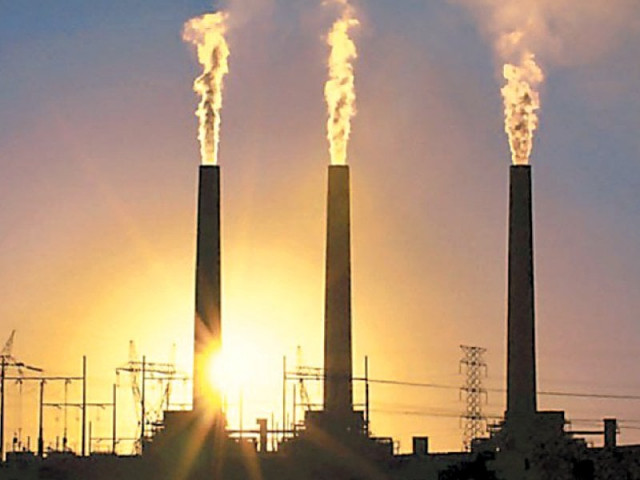Powering up: Govt to finally pay IPPs Rs285b in outstanding dues
Move expected to ease circular debt issue that plagues the entire energy chain and help curtail load-shedding.

The IPPs will be paid before June 30, as part of efforts to mop up a Rs503 billion circular debt in two phases over as many months. PHOTO: FILE
As the government looks set to clear over Rs285 billion in outstanding dues of Independent Power Producers (IPPs) this week, a meeting of the country’s top economic decision making body has been called to find a way to settle some thorny issues in the matter.
The maiden meeting of the new Economic Coordination of the Cabinet (ECC) will be held before the end of this week. It will review the possibility of renegotiating a few terms of the Power Purchase Agreements (PPAs) with IPPs and approve a structure for the settlement payments, sources said.
The Ministry of Finance has worked out dues of over Rs290 billion, which are to be paid out to 28 IPPs. The IPPs will be paid before June 30, as part of efforts to mop up a Rs503 billion circular debt in two phases over as many months, officials working on the transaction told The Express Tribune. All dues up to the end of May will be cleared, they added.
The amount is exclusive of Rs25 billion owed by the IPPs to the federal government on account of penalties on running plants below agreed-to capacity. The government wants to adjust this sum in the outstanding dues.

Minister for Finance Ishaq Dar has already vowed to clear the IPPs’ dues: an amount of Rs326 billion has been budgeted for this purpose, which will have to be paid before the end of this month, or else it will lapse due to the close of the fiscal year.
Although the structure of the transaction has not yet been finalised, officials said the possibility was that the IPPs will receive cash directly into their accounts. These payments will enable the IPPs to clear their loans and add 1,700 megawatts (MW) to 2,000MW to the national grid, helping reduce load-shedding in Ramadan, the officials added.
At post-budget press conference, Finance Minister Ishaq Dar had announced that he would convince the IPPs to renegotiate the terms of their agreements – an area where he was facing problems since the IPPs had their own arguments, officials added.
“We have achieved what we wanted to achieve, but in a different manner,” Dar said while talking to The Express Tribune. He was responding to a question asking whether the IPPs were unwilling to renegotiate the PPAs. Dar said the ECC meeting will be held within this week and will take a final decision on the issue.
Dar had wanted IPPs to reduce late payment surcharges from the current rate of Karachi Interbank Offering Rate (KIBOR) plus 4% to KIBOR plus 2%, an envisaged relief of 200 basis points. He had also vowed to seek the credit limit period to be extended from one month to two months.
According to officials, there has still been little progress on these issues, as IPPs have sought additional payments for extending the credit period and have refused to lower late payment surcharges.
“There is no profit element in late payments. If the rates are reduced from KIBOR plus 4%, the IPPs will be wiped out,” an IPP official told The Express Tribune while speaking on condition of anonymity. He said the IPPs make fuel supply payments in advance by borrowing from banks, while power purchases clear their dues much later.
The IPPs insisted that the government pay a price for requesting an extension to the payment period, the officials added. Moreover, amending the PPAs would require consultations with the Private Power Infrastructure Board and the National Electric Power Regulatory Authority, the officials pointed out.
While talking to The Express Tribune, Dr Musadik Malik, special assistant to the prime minister, said that there was a need to sit down and renegotiate the terms of the agreements with the IPPs in the best interests of the nation. He said the exercise should be conducted without blackmail from either end.
Dr Malik, who enjoys the status of a minster of state, said the direction of the talks should be that policies should be investor-friendly, but must also protect the interests of the country – unlike the past, he said, when public interest was compromised.
Published in The Express Tribune, June 25th, 2013.
Like Business on Facebook, follow @TribuneBiz on Twitter to stay informed and join in the conversation.



















COMMENTS
Comments are moderated and generally will be posted if they are on-topic and not abusive.
For more information, please see our Comments FAQ